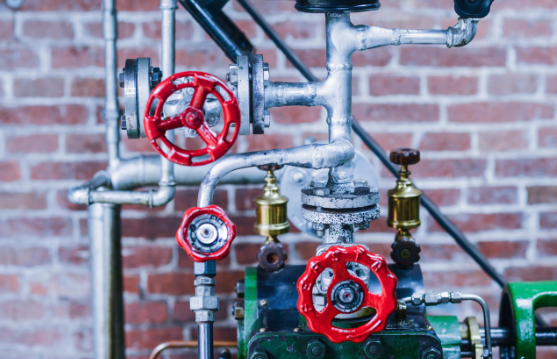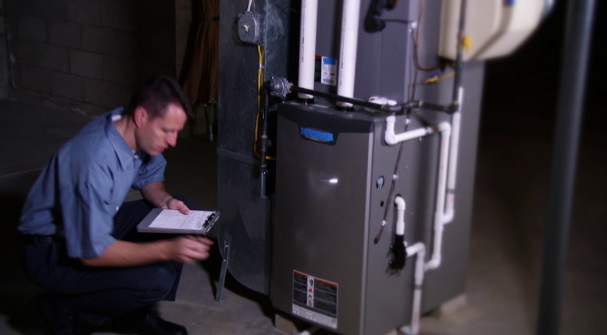When it comes to our hot water systems, we rely on them daily for various tasks such as showering, doing laundry, and washing dishes. However, just like any other appliance or system in our homes, they can eventually start to show signs of wear and require attention. At this point, homeowners are faced with a crucial decision: should they upgrade or repair their hot water system? This article aims to provide guidance on how to make the best choice when it’s time for a new hot water system. By weighing the factors influencing these decisions and considering key considerations relating to cost-effectiveness, energy efficiency and long-term investment potential and recommendations from JR Burns Plumbers, readers will gain valuable insights into determining whether an upgrade or repair is the most suitable solution for their specific needs.
Signs of Wear and Aging: Identifying when your hot water system is showing signs of wear and aging is crucial in determining whether it’s time for an upgrade or repair
Signs of wear and aging in a hot water system can be indicators that it is time for an upgrade or repair. These signs may include leaks, decreased water pressure, temperature fluctuations, and frequent breakdowns. Identifying these issues is crucial as it allows homeowners to address them promptly and avoid further damage.
When our hot water systems start showing signs of wear, it becomes essential to decide whether we should upgrade or repair them. Factors such as the age of the system, frequency of repairs needed, energy efficiency, and cost considerations need to be weighed. By carefully evaluating these factors, homeowners can make an informed decision about whether they should invest in a new hot water system or opt for repairs on their existing one.
In conclusion, recognizing signs of wear and aging in a hot water system is vital for determining when it’s time for an upgrade or repair. Making the right choice between upgrading or repairing depends on various factors like the age of the system and cost considerations. Being proactive about addressing issues with your hot water system ensures its longevity and efficient operation in providing comfort throughout your home.
Cost Considerations: Exploring the financial aspects of upgrading or repairing your hot water system, including initial costs, long-term savings, and potential rebates or incentives
When considering whether to upgrade or repair your hot water system, it is essential to examine the financial aspects of both options. Initially, upgrading a hot water system will involve higher upfront costs compared to repairing it. The cost of a new hot water system can vary depending on factors such as the size of your home and desired features. However, despite the initial expense, upgrading may lead to long-term savings in terms of energy efficiency. Newer models often utilize advanced technology that reduces energy consumption and lowers utility bills over time.
Furthermore, homeowners should also explore potential rebates or incentives available for installing energy-efficient hot water systems. Many governments and utility companies offer programs that encourage homeowners to make eco-friendly choices by providing monetary incentives or rebates for purchasing efficient appliances. By taking advantage of these offerings, you can offset some of the initial costs associated with upgrading your hot water system.
Overall, when assessing whether to upgrade or repair your hot water system, careful consideration must be given to cost considerations such as initial expenses, long-term savings from increased efficiency, and potential rebates or incentives that can help mitigate costs in the short term.
Energy Efficiency and Environmental Impact: Evaluating the energy efficiency and environmental impact of your current hot water system and how it compares to newer, more efficient models
When evaluating the energy efficiency and environmental impact of your current hot water system, it is important to consider how it compares to newer, more efficient models. Older hot water systems may not be as energy-efficient, resulting in higher utility bills and greater carbon emissions. Additionally, outdated systems may use materials or processes that have a negative environmental impact.
Comparing your current hot water system with newer models can help determine whether an upgrade is necessary. Newer systems often come equipped with advanced technologies that improve energy efficiency, such as improved insulation and more efficient heating mechanisms. These upgrades can result in significant cost savings over time and reduce your carbon footprint.
Furthermore, assessing the environmental impact is crucial when deciding between repair and replacement. Modern hot water systems are designed to be more environmentally friendly by using renewable energy sources or minimizing greenhouse gas emissions during operation. By upgrading to a newer, more efficient model, you can contribute to reducing overall environmental harm caused by old or inefficient hot water systems.
Overall, taking into account factors such as energy efficiency improvements and reduced environmental impact can assist homeowners in making an informed decision regarding whether it’s time for a new hot water system or if repairs will suffice.
Future Needs and Lifestyle: Considering your future needs and lifestyle factors such as family size, usage patterns, and any upcoming home renovations or additions
When considering future needs and lifestyle factors such as family size, usage patterns, and upcoming home renovations or additions, it is important to carefully assess the current state of your hot water system. Depending on the size of your family and how often hot water is used in your daily routines, you may need to upgrade to a larger capacity system to adequately meet your needs. Additionally, if there are plans for future home renovations or additions that would increase the demand for hot water, it may be more cost-effective in the long run to invest in a new system rather than continually repairing an older one.
The decision between upgrading or repairing a hot water system should also take into account the cost-effectiveness of each option. Factors such as the age and condition of the current system, the availability of replacement parts, and energy efficiency should all be considered when determining whether repairs are worth investing in. If repairs will only provide temporary relief before further issues arise or if newer systems offer significant energy savings that can offset their higher upfront costs over time, it may make more sense financially to opt for an upgrade.
Overall, making a decision about whether to upgrade or repair a hot water system requires careful consideration of future needs and lifestyle factors. By assessing usage patterns, family size, planned renovations or additions, cost-effectiveness measures like energy efficiency and repair costs can help homeowners make an informed choice that meets both their immediate and long-term requirements.








